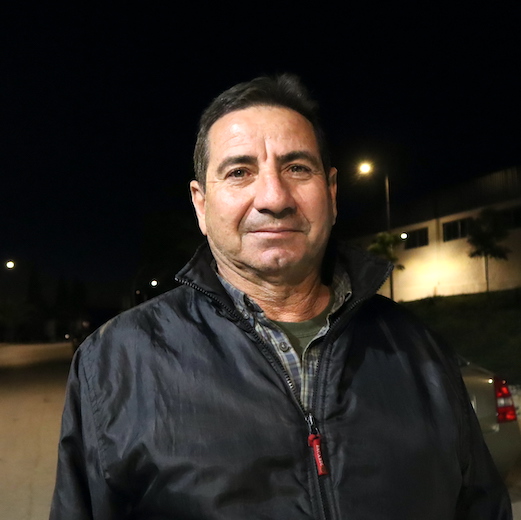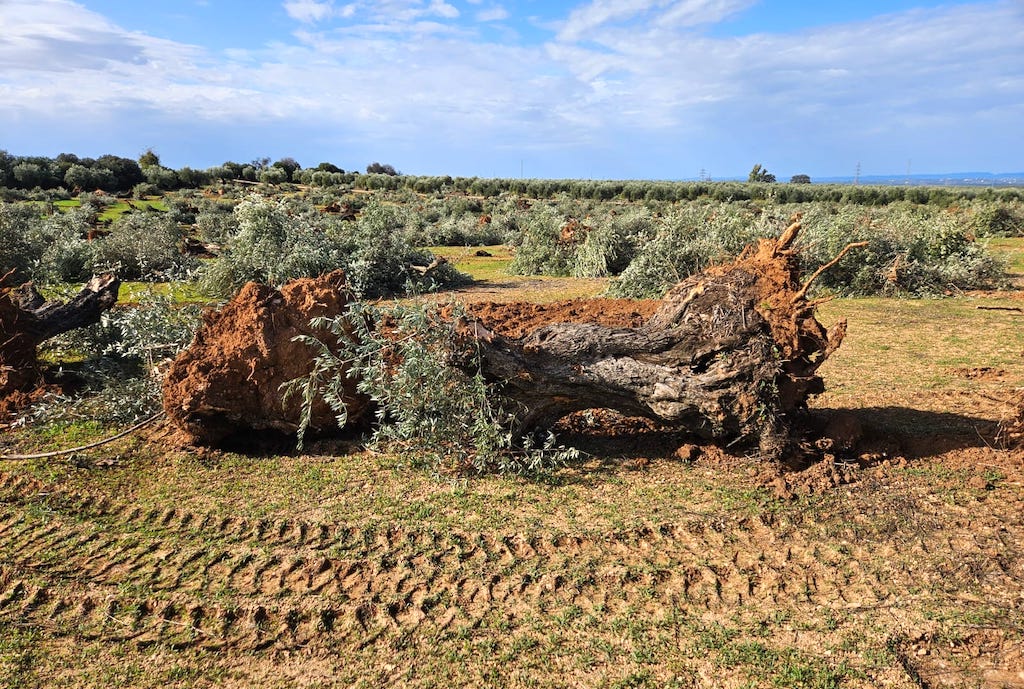Manuel Cabezas grew up surrounded by olive trees. Like every other family in the Andalusian village of Lopera in southern Spain, his parents, grandparents and great-grandparents had taught him that this iconic Mediterranean crop was the most valuable investment he could make. So, with retirement in mind, he used his savings to buy two and a half hectares of land on which to plant 400 olive trees.
“Here, we invest in what we know,” he says. “Not in flats or investment plans we don't understand.”

However, Cabezas is now worried that his investment and efforts may have been in vain. Like dozens of other farmers and small landowners in the area, he received a letter last summer from the Junta de Andalucía (the regional government), informing him that his land was to be expropriated. This is because Greenalia, a Spanish renewable energy company with investments in several European countries and the United States, plans to build up to seven photovoltaic parks on the site of the olive groves — a project that the Junta de Andalucía has declared to be of public interest due to its contribution to the energy transition.
The press office of the Delegation of Economy and Industry in Jaén informed Voxeurop that "the Electricity Sector Law, which applies throughout Spain, obliges regional administrations to process applications for a Declaration of Public Utility (expropriations) for electricity installations when the promoter and the owner cannot reach an agreement". Of the total number of renewable energy projects processed by the Andalusian regional government in recent years, only 0.88% have required a declaration of public utility.
Spain is moving away from fossil fuels faster than many other EU countries and accelerating its path towards climate neutrality by 2050 by switching to its abundant renewable resources, particularly wind and solar power. According to the state-owned company Red Eléctrica, nearly 57% of the country’s energy consumption came from renewable sources in 2024. This demonstrates Spain's strong commitment to reducing climate-altering emissions in line with EU climate goals. Solar energy consumption rose by 19% over the last year alone. However, the boom in large-scale solar projects often has a negative impact on rural communities, particularly in Andalusia, where most of Spain's olive oil is produced.
“Nobody cares about us,” says María Mena, a Loperana who comes from a long line of olive growers. “The energy they are going to produce is not for Lopera.” But the land is cheaper here, she concludes.
Do you like our work?
Help multilingual European journalism to thrive, without ads or paywalls. Your one-off or regular support will keep our newsroom independent. Thank you!
















